Table of Contents
Remembering Jimi Hendrix (1942-1970), born on this day.
Jimi Hendrix
Jimi Hendrix: a painful childhood, an extraordinary talent and the deadly cocktail that included him in the 27 Club.
The guitarist who managed to become one of the most influential figures in Rock and Roll in four years, lived his first years of life in a violent environment, under the care of alcoholic parents who could not cover his basic needs. The arrival of music as his salvation and the path to his tragic destiny.
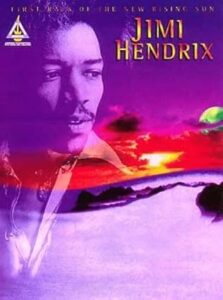
Best Sheet Music download from our Library.
Few artists manage to revolutionize their art like Jimi Hendrix did with his electric guitar. His unique style, which combined a technique achieved by his self-taught learning and inexhaustible creativity, broke with everything established at his time. In his hands, the guitar found new expressions. Hendrix played with distortion, feedback and other unexplored territories. His playing, considered an extension of his free spirit, electrified audiences with high-energy solos and theatricality that could include playing with his teeth or behind his head. Although his professional career lasted only four glorious years, he managed to seal his name in history in that short time. Jimi Hendrix is considered one of the most influential musicians and guitarists in rock history.

Please, subscribe to our Library.
If you are already a subscriber, please, check our NEW SCORES’ page every month for new sheet music. THANK YOU!
Johnny Allen Hendrix , as he was registered at birth, came into the world on November 27, 1942 in Seattle, in the midst of World War II and a deeply segregated society. Son of Lucille Jeter, a 17-year-old teenager, and James Allen Hendrix, known as “Al”, his childhood was marked by poverty and family instability. His father was drafted into the army three days after the wedding and did not meet Jimi until he was three years old. He was the eldest of five siblings, Leon, Joseph, Kathy and Pamela. The problems between their parents were generated by a lack of resources, since they could not find permanent employment, and were aggravated by alcohol consumption and domestic violence . Due to the tenor of the fights, little Jimi hid inside a closet, according to his stories. In that dark time it was common for them to move all the time, for Jimi to be sent to his grandmother’s house in Vancouver and for his brother Leon to go in and out of foster homes. The three younger siblings were eventually put up for adoption by their parents. The youngest, Pamela, was months old. Jimi was 9. Together with his brother Leon, they remained in the custody of their father. Six years later, his mother Lucille lost her life to cirrhosis. Life had been merciless to Jimi from the beginning.
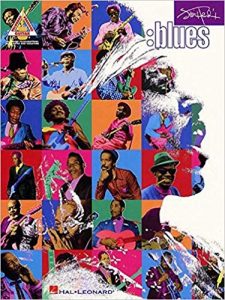
At the age of 15 he got his first guitar, which had a single string, and he quickly made it his inseparable companion. It was a ukulele that he rescued when a woman was throwing it into a container. From that instrument he got his first notes inspired by rock and roll figures such as Little Richard, Chuck Berry and Elvis Presley. Months later he got his first acoustic guitar for $5, with which he played for hours and learned to play by ear. Hendrix never learned to read music. His fascination and innate talent set him apart from the beginning, although his energetic and experimental style was not always well received in his first attempts to play in public.
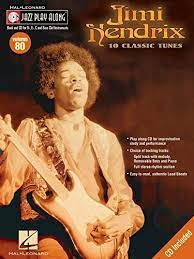
His father gave him the electric guitar in mid-’59. The acoustic guitar was barely heard among the other instruments when he formed his first band called The Veltones. In November 1961 , the future star was ‘discovered’ by a fellow soldier, Billy Cox , while playing guitar at an Army club. Intrigued by his ability, Cox joined Hendrix in a musical jam, marking the beginning of a collaboration that would lead to the two playing clubs on the military base on weekends. This stage of Hendrix’s life took place while he was serving in the United States Army, which he joined to avoid a prison sentence for driving stolen cars.
Hendrix entered the Army on May 31, 1961, after being arrested twice before turning 19. After completing eight weeks of basic training at Fort Ord, California , he was assigned to the 101st Airborne Division – a division of elite air assault – and moved to Fort Campbell, Kentucky . In a letter to his father, the young man described his experience as a period of intense physical training, harassment and highly demanding.

During his time at Fort Campbell, the musician asked his father to send him his guitar, a red Silvertone Danelectro , which he had left at his girlfriend’s house in Seattle. The guitar, on which he had written “Betty Jean,” became his obsession, which led him to neglect his chores. This behavior caused his classmates to make fun of him and hide his guitar from him to listen to his pleas.
Despite completing his paratrooper training and receiving the Paratroopers’ Eagle Badge on January 11, 1962, Hendrix’s behavior began to worry his superiors. He was described as an unskilled marksman and was caught sleeping on duty. On May 24, 1962, his platoon leader, James C. Spears , wrote a report stating that Hendrix showed no interest in the Army and recommended his departure.
Now free of obligations, in Tennessee , in the 1960s, Hendrix began to forge his musical career on the circuit known as the Chitlin’ Circuit , a key space for African-American musicians of the time. In September 1963 he moved to Clarksville with Billy Cox , where they formed the band King Kasuals .
In Nashville , the band found a home on musical Jefferson Street , the epicenter of the black community and rhythm and blues in the city. There, the guitarist perfected his style and techniques, to the point of playing the guitar with his teeth, a trick that he had observed in other musicians and that he adopted so as not to be overshadowed. “The idea to do it came to me… in Tennessee. There you have to know how to play with your teeth or they will shoot you,” Hendrix once said.
After years playing on the “Chitlin’ Circuit,” a group of venues dedicated to African-American music, the guitarist traveled to New York in search of new opportunities. There, he met Chas Chandler , former bassist for The Animals, who recognized his talent and convinced him to move to England. It was in “Swinging London” where Jimi found an audience willing to appreciate his innovative style. With his band, The Jimi Hendrix Experience, he captivated musicians and audiences alike, leaving even giants like Eric Clapton in awe of his skill. His debut single, Hey Joe , and his album Are You Experienced catapulted him to stardom and cemented his place as a key rock figure.
A life marked by success and excess
Jimi Hendrix’s meteoric rise to fame had a strong impact on his personal life. In just four years, between 1966 and 1970, he went from being an unknown musician to becoming one of the most influential guitarists of all time . This transformation came accompanied by big problems. The sudden popularity and dizzying pace of concerts, grueling recordings and world tours put a lot of pressure, previously unknown. So his new life introduced him into a spiral of excesses, which he was unable to control.
In May 1966 , Jimi Hendrix was in a difficult stage of his career, trying to stay afloat on the R&B circuit . At one of his performances, he met Linda Keith, one of the women who played key roles in his life. She was the girlfriend of The Rolling Stones guitarist Keith Richards , who was fascinated by seeing him play. This meeting was an important step on his path to stardom, as she played a key role in introducing him to influential figures in the world of music.
When Jimi Hendrix arrived in London in 1966, accompanied by Chas Chandler , the former bassist of The Animals who would become his manager, he found fertile ground for his music. Hendrix quickly earned a place in the music scene. From the first performances with The Jimi Hendrix Experience , made up of bassist Noel Redding and drummer Mitch Mitchell , he captivated both the public and his fellow musicians. His debut single “Hey Joe” was a resounding success, climbing to the top of the British charts and the beginning of an extraordinary career.

One of the unforgettable moments of his rise to fame from this period occurred when Eric Clapton , the “God” of the guitar, invited Hendrix to come on stage during a concert by his band Cream. ‘s “Killing Floor” On that occasion, Hendrix performed Howlin’ Wolf with such virtuosity that it left Clapton and the audience speechless. That night he reaffirmed his reputation as a new rock star. Established artists such as The Beatles , The Rolling Stones and Pete Townshend were impressed by his skill and creativity. This recognition within the British musical elite, combined with the commercial success of his debut album Are You Experienced , positioned Hendrix as an icon in Europe and marked his meteoric rise.
His loves
London also gave him his longest romantic relationship in his short life. This is Kathy Etchingham , an English hairdresser who shared with him the peak years in Europe. Kathy would remember Hendrix as a loving and fun person, capable of tender gestures like buying a toy, a small pony, for a friend’s baby when he barely had any money for himself. However, their wild lifestyle, which included long trips, worked against the relationship. In an interview with the British Dick Cave on his famous show, he was seen exhausted by the dizzying pace of life. “I’m quite tired. I’m recording a lot. “I didn’t sleep last night because I’m recording an LP,” he told the driver in a monotone and lethargic state. The last three years of his life gave him no respite, he said.
Casual relationships were rife, mostly with groupies, many of whom claimed to have had children with him. One of the most notorious cases is that of James Sundquist, who was legally recognized as Hendrix’s son by a Swedish court in 1975, although his relationship with the guitarist remains a subject of debate. Another supposed daughter, Tamika Hendrix, was not officially recognized, and her mother’s attempt to claim a share of the inheritance was rejected in 1972.
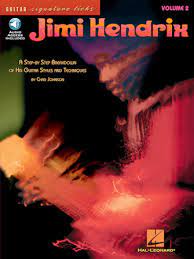
A violent side and tragic ending
Jimi Hendrix is remembered for his musical talent, but also for his untimely death. In September 1970 , few show business figures were as linked to drug culture as Jimi Hendrix , according to biographer Charles Cross. This bond had intensified since 1967, when Hendrix began using marijuana , hashish , amphetamines and LSD on a regular basis, especially during his tours. Before that year, his drug use had been sporadic.
His interest in LSD manifested itself in 1966, in a meeting at Linda Keith ‘s apartment , when a friend offered him acid. According to the biographer, Hendrix showed “naivety and complete inexperience with psychotropics,” which marked the beginning of his closer relationship with these substances.
According to journalist and friend Sharon Lawrence , the guitarist recognized that the consumption of high-proof alcoholic beverages transformed him, leading him to a state of fury that he did not experience otherwise. Even worse when he combined it with other substances and ended up generating episodes of violence, those that had terrified him when he was a defenseless child.

Herbie Worthington , a close friend of Hendrix, once told how the musician, who could be tender and loving, became a completely different person under the influence of alcohol. Worthington claimed that Hendrix simply couldn’t handle the alcohol consumption, leading him to behave aggressively.
Laden Sie die besten Noten aus unserer Bibliothek herunter.
Jimi Hendrix’s last days were marked by tension and exhaustion. In August 1970, Hendrix opened Electric Lady Studios in New York, a project of his own that symbolized his desire for creative independence. This innovative facility was the space he had always dreamed of to experiment with his music. However, the constant touring, the media pressure and the wheel that did not stop turning plunged him into a state of physical and emotional exhaustion.
In the weeks before his death, Hendrix traveled to Europe to perform a series of concerts. He played at the Isle of Wight Festival , where, despite technical problems and delays, he managed to rock an audience ranging from 300,000 to 600,000 people. His last festival appearance, on the Island of Fehmarn in Germany, was remembered, but not for his talent. The rain and the long waits made the audience lose patience and boo the guitarist before going on stage. In any case, the American once again did magic with his guitar.
On September 17, 1970, Hendrix returned to London, where he spent the night accompanied by Monika Dannemann , a German figure skater, his partner at the time. According to Monika, the next morning they shared a simple meal accompanied by wine in their room at the Samarkand hotel. The musician, unable to fall asleep, allegedly swallowed several Vesperax pills, a powerful sleeping pill. The dose, between eight and nine pills, was significantly higher than recommended and, combined with alcohol, was fatal.
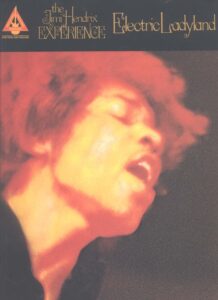
The exact circumstances of his death were the subject of numerous speculations and contradictory versions. Monika claimed to have found him unconscious and called for help. Some versions claim that Hendrix was still alive when he arrived at the hospital, while others did not make it, that he died on the way. The official report determined that he died from “inhalation of vomit due to barbiturate poisoning,” that is, he choked on his own vomit. And that would have happened due to the incompetence of the staff who gave him first aid by placing him face up.
Hendrix’s death, at age 27, added to a series of tragedies of the 27 Club, the select group of stars who lived intensely and dangerously and died at the peak of their careers.
The Jimi Hendrix Experience – Voodoo Child (Slight Return) (Live In Maui, 1970)
Live in Maui, 1970 – “Voodoo Child (Slight Return)” by The Jimi Hendrix Experience, withMitch Mitchell on drums and Billy Cox on bass.
Jimi Hendrix, Like A Rolling Stone Live
Browse in the Library:
| Artist or Composer / Score name | Cover | List of Contents |
|---|---|---|
| Yiruma – Kiss the Rain | Yiruma Kiss the rain | |
| Yiruma – Kiss The Rain (Musescore File).mscz | ||
| Yiruma – Love Me | ||
| Yiruma – Maybe | ||
| Yiruma – Mikas Song | ||
| Yiruma – One Day I Will | ||
| Yiruma – Our Same Word | ||
| Yiruma – Passing By | ||
| Yiruma – Piano Album BOOK |
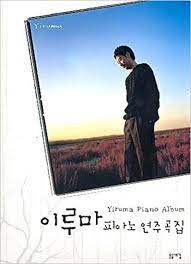 |
Yiruma – Piano Album BOOK |
| Yiruma – River Flows In You | ||
| Yiruma – River Flows In You – 10th Anniversary Version (Piano) |
 |
|
| Yiruma – River Flows In You – Guitar arr. with TABs | Yiruma – River Flows In You – Guitar arr | |
| Yiruma – Shining Smile | ||
| Yiruma – Sometimes Someone | ||
| Yiruma – Sunny Rain | ||
| Yiruma – Tears On Love | ||
| Yiruma – The Moment | ||
| Yiruma – Till I Find You | ||
| Yiruma – Time Forget | ||
| Yiruma – Wait There | ||
| Yiruma – When The Love Falls | ||
| Yiruma Be My First |
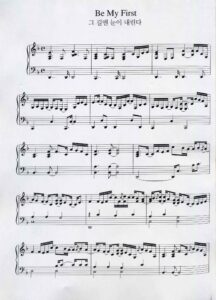 |
|
| Yiruma Because I Love You |
 |
|
| Yiruma Dream A Little Dream Of Me Piano Solo |
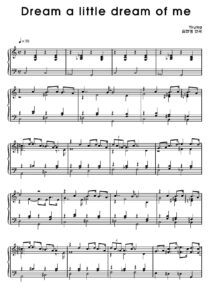 |
|
| Yiruma First Love Piano Solo |
 |
|
| Yiruma Kiss The Rain |
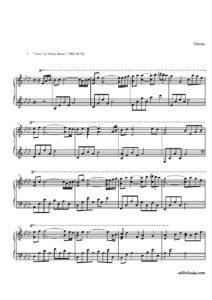 |
|
| Yiruma May Be |
 |
|
| Yiruma Poem |
 |
|
| Yiruma River Flows In You Guitar Solo with Tablature |
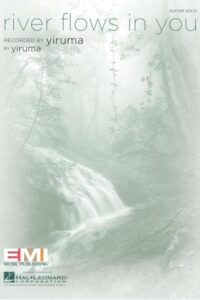 |
|
| Yiruma River Flows In You Piano Solo |
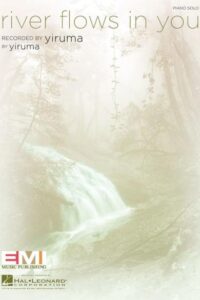 |
|
| Yiruma Room With A View Sheet Music Songbook |
 |
|
| Yiruma The Collection |
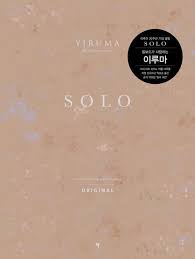 |
 |
| Yiruma Wait There |
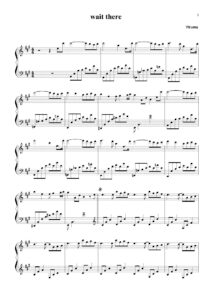 |
|
| Yngwie Malmsteen Trilogy (Full Album, Full Score Guitar Tabs) |
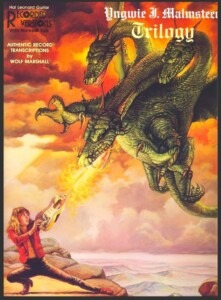 |
|
| Yoasobi (Monster) Easy Piano Solo sheet music |
 |
|
| Yoasobi Love Letter (ラブレター) Yoasobi Piano |
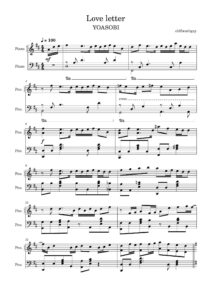 |
|
| Yoasobi Racing Into The Night ピアノ Yoasobi Yoru Ni Kakeru 夜に駆ける |
 |
|
| Yoasobi アイドル Idol Oshi no Ko OP |
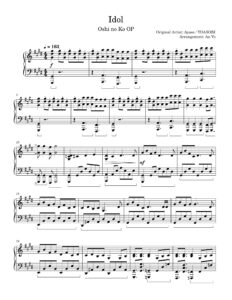 |
|
| Yoasobi あの夢をなぞって Ano Yume Wo Nazotte Tracing that Dream |
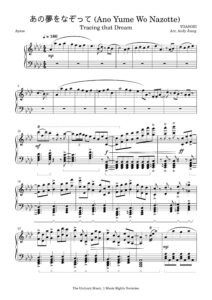 |
|
| Yoasobi 夜に駆ける Yoasobi (Marasy Full Ver ) Yoru Ni Kakeru |
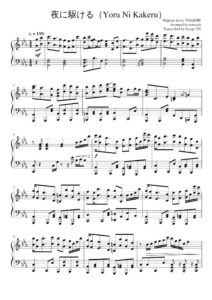 |
|
| Yoasobi 群青(gunjou) piano |
-Piano-sheet-music-232x300.jpg) |
|
| Yoga Music For Piano Solo 24 Chill Songs To Soothe Your Soul |
 |
Yoga Music For Piano Solo 24 Chill Songs To Soothe Your Soul |
| Yoimachigusa Evening Primrose Ohno Tadasuke |
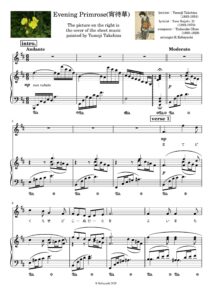 |
|
| Yoko Kanno – Piano Solo from Cowboy Bebop |
 |
|
| Yokoyama La Partition Blanche for piano solo | Yokoyama La Partition Blanche for piano solo | |
| Yokoyama Masaru Again – Your Lie In April Shigatsu wa Kimi no Uso Piano Solo |
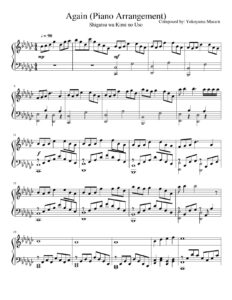 |
|
| Yoshimata, Ryo Between Calm And Passion |
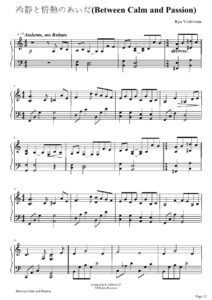 |
|
| Yoshimatsu 4 Little Dream Songs | Yoshimatsu 4 Little Dream Songs | |
| Yoshimatsu 7 Pleiades Dances IX Op 85 |
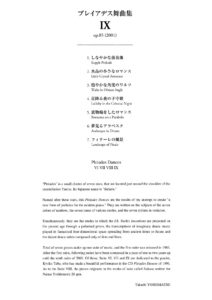 |
|
| Yoshimatsu Piano Folio To A Disappeared Pleiad |
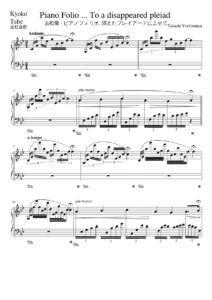 |
|
| Yoshimatsu Takashi Wind Color Vector (Guitar) |
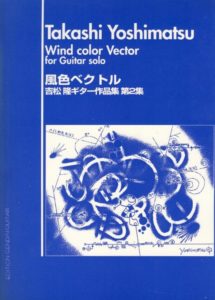 |
|
| Yoshinao Nakada – Etude Allegro | Yoshinao Nakada – Etude Allegro | |
| Yoshinao Nakada – Japanese Festival (Intermediate Piano Solos 17 Piano Pieces for students)) |
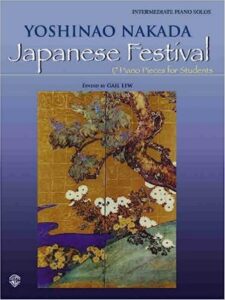 |
Yoshinao Nakada – Japanese Festival (Intermediate Piano Solos 17 Piano Pieces for students)) |
| You (Evanescence) | ||
| You (Ten Sharp) | ||
| You are the only one (Freddie Mercury) | ||
| You Are The Sunshine Of My Life – Stevie Wonder (Musescore File).mscz | ||
| You Go To My Head Guitar Tabs Jazz standard by Haven Gillespie J. Fred Coots |
 |
|
| You Must Believe In Spring Michel Legrand (Musescore File).mscz | ||
| You Raise Me Up (Musescore File).mscz | ||
| You take my breath away (Queen) | ||
| You Took The Sweet From Sweetheart Alex Sullivan, Al Doyle and Irving Kaufman (Vintage Jazz standard) |
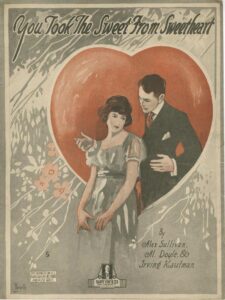 |
|
| You’re A Mean One Mr. Grinch (Musescore File).mscz | ||
| Your Song – Elton John (Musescore File).mscz | ||
| Youve Got A Friend In Me (Musescore File).mscz | ||
| Yugo Kanno – Yoshikage Kiras Theme Piano |
 |
|
| Yugo Kanno – Golden Wind Main Theme (Il vento d’oro) |
 |
|
| Yugo Kanno – Jolynes Theme Stone Ocean Piano Solo |
 |
|
| Yuhki Kuramoto – Piano solo Collection |
 |
|
| Yuhki Kuramoto A Scene Of La Seine |
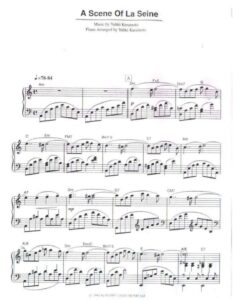 |
|
| Yuhki Kuramoto A Winter Story |
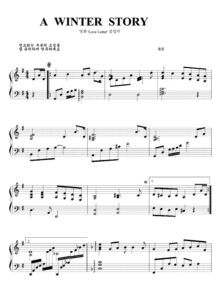 |
|
| Yuhki Kuramoto Lake Louise | Lake Louise1 | |
| Yuhki Kuramoto Romance |
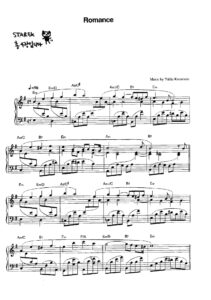 |
|
| Yuja Wang Mozart’s Turkish March From Sonata No. 11 As Per Volodos Fazil Say Arr. |
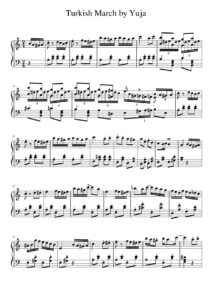 |
|
| Yukie Nishimura – Dances Of Water (Musescore File).mscz | ||
| Yukie Nishimura – Letter (Musescore File).mscz | ||
| Yukie Nishimura Best composition Vol 1 Japanese New Age music |
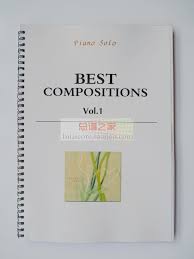 |
Best composition Vol 1 Yukie Nishimura 120 Japanese new age music |
| Yukie Nishimura Best composition Vol 2 Japanese New Age music |
 |
Best composition Vol 2 Yukie Nishimura 112 Japanese New Age music |
| Yukie Nishimura Best composition Vol 3 Japanese New Age music |
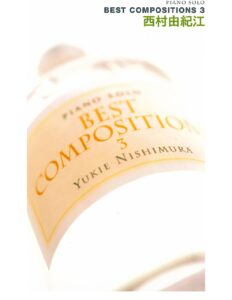 |
Best composition Vol 3 Yukie Nishimura 111 Japanese New Age music |
| Yukie Nishimura Letter |
 |
|
| Yukie Nishimura Xi Cun You Ji Jiang – Dances of water |
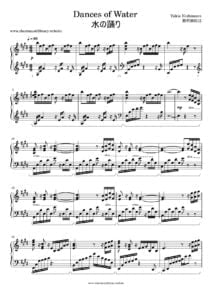 |
|
| Yumi Kimura Itsumo Nando Demo (Always With Me From Spirited Away) Guitar Arr. With Tabs |
 |
|
| Yuna’s Ballad (Musescore File).mscz | ||
| Yuriko Nakamura Comme Ce Jour Piano |
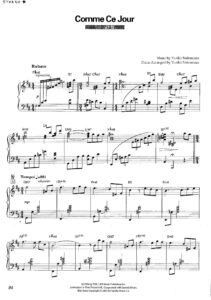 |
|
| Yuriko Nakamura Legend |
 |
|
| Yves Montand Livre D’or |
 |
Yves Montand Livre D’or |
| Zappa, Frank 200 Motels The Suites Full score |
 |
|
| Zappa, Frank and the Mothers of Invention The Complete Guide (Book) |
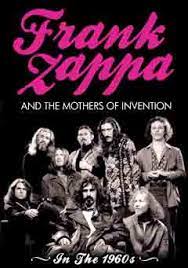 |
|
| Zaz Songbook |
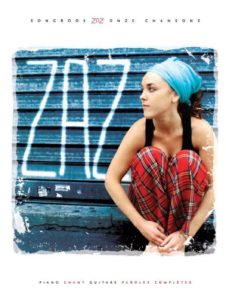 |
Zaz Songbook |
| Zelda Ocarina Of Time Song Of Storms By Koji Kondo (Piano Solo) |
 |
|
| Zelda – Breath of the Wild – Fairy Fountain |
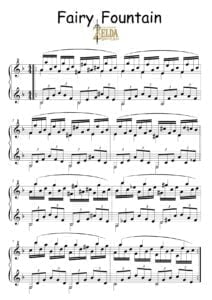 |
|
| Zelda – Breath of the Wild – Flight Range |
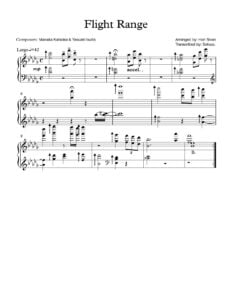 |
|
| Zelda – Breath of the Wild – Mipha’s Theme |
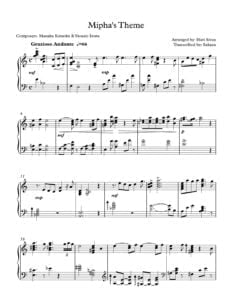 |
|
| Zelda – Breath of the Wild – Revali’s Theme |
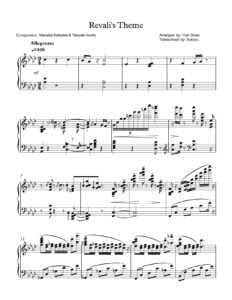 |
|
| Zelda – Breath of the Wild – Riding (day) |
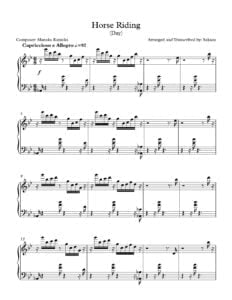 |
|
| Zelda – Breath of the Wild – Rito Village |
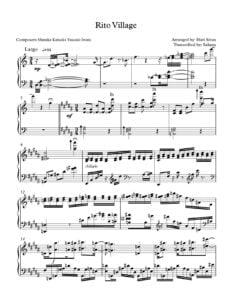 |
|
| Zelda – Dungeon Theme | ||
| Zelda – Ocarina Medley | ||
| Zelda – Ocarina Of Time – Zeldas Lullaby | ||
| Zelda – Saria | ||
| Zelda – The Light World | ||
| Zelda – The Lost Woods | ||
| Zelda – The Triforce | ||
| Zelda -The Legend Of Zelda (Main Theme)by Koji Kondo |
 |
|
| Zelda Medley Piano Solo arr. |
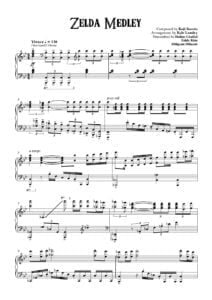 |
|
| Zelda The Legend Of Zelda Great Fairy Fountain (Piano Etude) Erik Correll |
 |
|
| Zombies Songbook Music From The Disney Channel Original Movie |
 |
Zombies Songbook Music From The Disney Channel Original Movie |
| Zubin Mehta – La partitura della mia vita (Biografia) Italiano |
 |
|
| ZZ Top Greatest Hits |
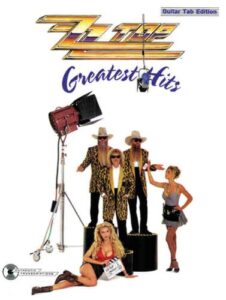 |
ZZ Top Greatest Hits |
| ZZ Top Volume 1 Guitar Vocal CLASSIC Authentic Guitar-Tab Edition includes complete Solos |
 |
ZZ Top Volume 1 Guitar Vocal CLASSIC Authentic Guitar-Tab Edition includes complete Solos (Hamstein Music) |
